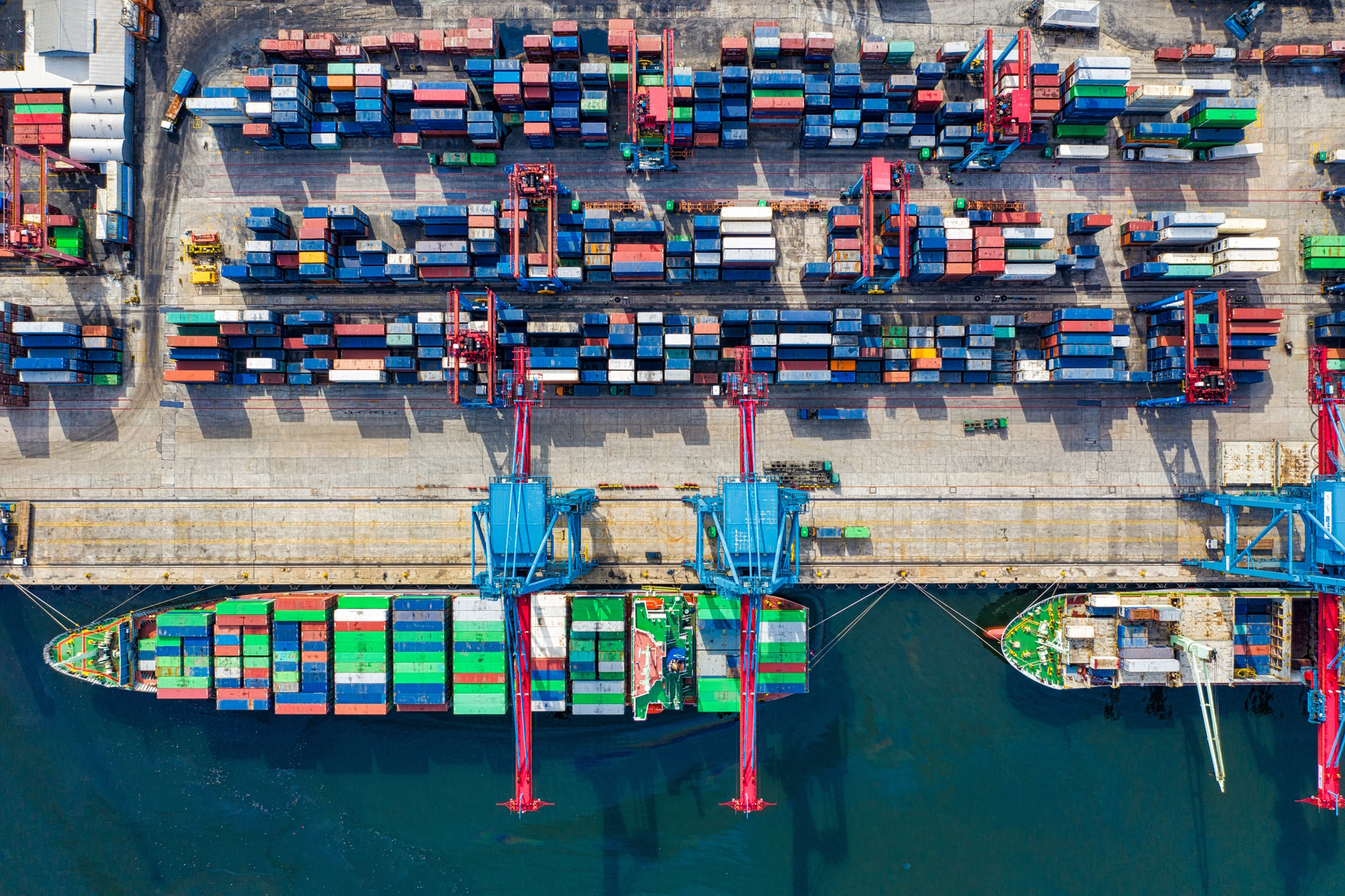In the aftermath of the pandemic, rethinking supply chains for resilience is crucial. Digital technology is driving transformative change in supply chain management. Sustainable and ethical considerations are increasingly important in post-pandemic supply chain strategies. Agile supply chain management offers a solution to navigate volatile market conditions.
KEY POINTS
Rethinking the Status Quo: Resilience in Supply Chains
The COVID-19 pandemic has fundamentally altered the global business landscape, challenging long-held assumptions and traditional business models. A notable paradigm shift has been witnessed in supply chain management, compelling C-level executives to redefine their understanding of resilience and robustness. In the pre-pandemic world, efficiency and cost-effectiveness were the cornerstones of supply chain design. Now, resilience emerges as a critical addition to these principles.
As the dust settles, a stark reality confronts us – the fragility of global supply chains. Supply chains are the lifeblood of the economy, and their disruption has brought to the forefront a critical question – are our supply chains equipped to navigate the tumultuous waters of a post-pandemic world? The knee-jerk reaction might be to revert to traditional models, to seek comfort in familiarity. But is that the right approach? We argue it is not.
From Efficiency to Resilience: A Paradigm Shift
Historically, supply chains have been engineered for optimal efficiency and minimal costs. While this approach has merits, it inherently assumes a stable, predictable environment. However, the pandemic has proven this assumption is flawed. The world is inherently volatile, and our supply chains need to reflect this reality.
The quest for efficiency, often at the expense of resilience, has resulted in intricate, globalised supply chains. This complexity, coupled with a lack of visibility and control, has amplified their vulnerability to disruptions. The challenge now is to strike a balance, to build supply chains that are not just efficient, but resilient.
But what does resilience entail? In the context of supply chains, resilience refers to the ability to anticipate, adapt, and bounce back from disruptions. It’s about designing supply chains that are not just reactive but proactive, capable of weathering the storm and emerging stronger.
Investing in Resilience: A Strategic Imperative
Resilience is no longer a desirable trait; it’s a strategic imperative. But fostering resilience requires more than mere lip service. It requires a comprehensive re-evaluation of supply chain design and management, a departure from the status quo.
It’s about recognising that the lowest-cost supplier might not be the best choice if they lack robust risk management practices. It’s about diversifying sourcing strategies to avoid over-reliance on a single region or supplier. It’s about prioritising transparency and end-to-end visibility to enable prompt, informed decisions. But, most importantly, it’s about fostering a culture of resilience, one that values flexibility and adaptability, and recognises that resilience is not a destination, but a journey.
The initial investment in resilience might seem daunting. There will be costs, challenges, and resistance. But the question we must ask is not whether we can afford to invest in resilience. The real question is, can we afford not to?
As we delve deeper into this topic, we will uncover the role of technology in enhancing supply chain resilience, the significance of sustainability, and the benefits of an agile approach to supply chain management in a post-pandemic world. The path to resilient supply chains is uncharted, but the need for change is undeniable. The traditional supply chain models may not suffice in the post-pandemic world. It’s time for a reimagining, and this begins with resilience.
Technology: The Catalyst of Resilient Supply Chains
In the pursuit of resilient supply chains, technology emerges as a potent catalyst. Traditional supply chain processes, characterized by manual oversight and limited visibility, are ill-equipped to handle the complexities of the post-pandemic world. Enter the era of digital supply chains, powered by advanced technologies like artificial intelligence (AI), machine learning, and the Internet of Things (IoT).
These technologies bring a host of capabilities to the table. AI and machine learning can process vast amounts of data in real-time, providing insights into potential bottlenecks or vulnerabilities. IoT devices provide end-to-end visibility, enabling timely, data-driven decisions. Blockchain can foster transparency and traceability, ensuring accountability at each stage of the supply chain.
Sustainability: A Non-Negotiable Factor in Supply Chain Resilience
Another key aspect of supply chain resilience in the post-pandemic world is sustainability. The pandemic has amplified the importance of sustainability, not just in terms of environmental impact, but also social and economic dimensions. It is crucial to recognize that resilient supply chains are not merely about survival in the face of disruptions. They are about thriving in a manner that is sustainable, ethical, and responsible.
Sustainable sourcing, ethical labor practices, and carbon footprint reduction are no longer corporate buzzwords. They are non-negotiable components of a resilient supply chain. A supply chain that fails to prioritize sustainability is not only susceptible to reputational risks and regulatory backlash but also misses out on opportunities for innovation and growth.
Agility: The New Mantra for Supply Chain Management
The post-pandemic world demands supply chains that are agile, capable of rapidly responding to changes in demand and supply dynamics. Rigidity in the face of volatility is a recipe for disaster. Agility, on the other hand, enables businesses to adapt to disruptions, minimize their impact, and swiftly recover post-disruption.
Embracing agility requires a shift from linear supply chain models to dynamic, interconnected networks. It involves fostering close collaboration with suppliers and customers, maintaining a flexible production capacity, and adopting a demand-driven planning approach. Agility is not about predicting the future accurately but being prepared for multiple possible futures.
Agility, technology, and sustainability are not just trends, but pillars of resilient supply chains. By integrating these elements into their supply chain strategy, businesses can navigate the volatility of the post-pandemic world, mitigate risks, and seize new opportunities. As we move forward, we will explore the implications of these changes for C-level executives and how organizations can facilitate a successful transition towards resilient supply chains.
Strategic Role of C-level Executives in Supply Chain Resilience
Steering a transition towards resilient supply chains is no small feat. It requires the strategic foresight, commitment, and leadership of C-level executives. Unlike the past, where supply chains were often sidelined in strategic discussions, the post-pandemic world positions them front and center. Supply chain resilience is not just an operational issue; it is a strategic imperative that directly impacts business performance and brand reputation.
C-level executives need to champion a holistic view of the supply chain, recognizing its intricate connection with other business functions and the wider ecosystem. They need to drive cross-functional collaboration, foster a culture of continuous learning, and advocate for investment in technology and sustainability initiatives.
Facilitating the Transition: An Organizational Perspective
A successful transition towards resilient supply chains involves more than strategy and leadership; it necessitates an organizational shift. Employees at all levels need to be aligned with the vision of supply chain resilience. This alignment is achieved through clear communication, education, and engagement initiatives.
Organizations also need to invest in developing capabilities that support supply chain resilience. This may involve reskilling the workforce to leverage new technologies, enhancing data literacy, and fostering a problem-solving mindset. Furthermore, organizations need to reevaluate their performance metrics to ensure they incentivize behavior that contributes to resilience, not undermine it.
Ultimately, resilience is not a destination but a journey of continuous improvement and adaptation. As businesses navigate this journey, they need to remain cognizant of the evolving landscape and stay open to learning, experimentation, and change. In the final section, we will explore how organizations can leverage consulting interventions to accelerate their transition towards resilient supply chains.
Leveraging Consulting Interventions to Accelerate Resilience
As businesses embark on the complex journey towards supply chain resilience, consulting interventions can play a pivotal role in accelerating progress. Consultants bring an external perspective, expertise in change management, and a deep understanding of industry trends and best practices. They can provide guidance, challenge traditional thinking, and help organizations navigate the inevitable roadblocks that arise during transformation.
Merillot offers a range of interventions tailored to the needs of organizations aiming to build resilient supply chains. These include conducting supply chain resilience audits, providing technology integration support, facilitating cross-functional collaboration workshops, guiding organizational culture transformation, and supporting sustainability initiatives.
Through these interventions, Merillot aids organizations in achieving their resilience objectives. However, the benefits extend beyond supply chain performance. As organizations evolve towards a more resilient model, they also become more agile, innovative, and sustainable, contributing to improved business performance and a stronger competitive advantage.
Final Thoughts: Reimagining Supply Chains for a Post-Pandemic World
The post-pandemic world presents an opportune moment for businesses to reimagine their supply chains. By transitioning from a cost-centric, efficiency-obsessed model to a balanced, resilience-focused approach, businesses can not only withstand future disruptions but also unlock new avenues for growth and innovation.
However, achieving supply chain resilience is not a task to be taken lightly. It requires a fundamental shift in mindset, strategy, and operations, necessitating the engagement and commitment of C-level executives and the entire organization. As businesses take up this challenge, consulting interventions such as those offered by Merillot can provide invaluable support, steering them towards a more resilient, sustainable, and prosperous future.
ChatGPT
Rethinking the Status Quo: Post-Pandemic Supply Chain Resilience
The COVID-19 pandemic has fundamentally altered the global business landscape, challenging long-held assumptions and traditional business models. One notable paradigm shift has been seen in post-pandemic supply chain management. This change is compelling C-level executives to redefine their understanding of a resilient supply chain, a term that has gained increasing importance. Prior to the pandemic, efficiency and cost-effectiveness were the cornerstones of supply chain design. Now, resilience emerges as a critical addition to these principles.
In the post-pandemic era, we must confront the reality of the fragility of global supply chains. Are our supply chains equipped to navigate the tumultuous waters of a post-pandemic world? The traditional models may provide a knee-jerk comfort in familiarity, but it’s time to reevaluate. A resilient supply chain, one capable of withstanding disruptions, is the need of the hour.
Digital Transformation in Supply Chain: From Efficiency to Resilience
Historically, supply chains were engineered for optimal efficiency and minimal costs. This approach has merits, but the pandemic has proven this assumption is flawed. In our volatile world, supply chains need digital transformation to enhance resilience.
The pre-pandemic pursuit for efficiency has resulted in intricate, globalised supply chains, often at the expense of resilience. However, the post-pandemic supply chain demands a balance of both efficiency and resilience, fostered by digital transformation. It involves developing proactive supply chains capable of anticipating, adapting, and bouncing back from disruptions.
Building a Resilient and Sustainable Supply Chain: A Strategic Imperative
In the post-pandemic world, a resilient and sustainable supply chain is not a luxury; it’s a strategic imperative. Building this resilience requires more than just words. It requires a comprehensive re-evaluation of supply chain design and management.
Creating a resilient and sustainable supply chain entails recognising that the lowest-cost supplier might not be the best choice if they lack robust risk management practices. It’s about diversifying sourcing strategies to avoid over-reliance on a single region or supplier. It’s about fostering a culture of resilience and sustainability, one that values flexibility, adaptability, and recognises resilience as a journey.
As we explore this further, we will uncover the significance of an agile approach to supply chain management, the role of technology in enhancing resilience, and the importance of sustainability in the post-pandemic world.
Digital Transformation in Supply Chain: Technology as the Catalyst
In building a resilient supply chain, digital transformation emerges as a potent catalyst. Traditional supply chain processes, characterized by manual oversight and limited visibility, are ill-equipped for the complexities of the post-pandemic world. Advanced technologies like artificial intelligence (AI), machine learning, and the Internet of Things (IoT) can empower the digital transformation in supply chains.
These technologies enhance resilience by providing insights into potential bottlenecks or vulnerabilities and enabling timely, data-driven decisions. They usher in a new era of digital supply chains, marking a leap from traditional supply chain models.
Sustainable Supply Chain: An Essential Factor in Resilience
In the post-pandemic world, sustainability is a non-negotiable aspect of a resilient supply chain. Resilience is not merely about survival in the face of disruptions but also thriving sustainably, ethically, and responsibly.
Sustainable sourcing, ethical labor practices, and carbon footprint reduction are essential to a sustainable supply chain. A resilient supply chain fails without prioritizing sustainability, posing not only reputational risks and regulatory backlash but also missing out on opportunities for innovation and growth.
Agile Supply Chain Management: Responding to the Post-Pandemic World
In the post-pandemic world, agile supply chain management is essential. Rigidity in the face of volatility spells disaster, whereas agility enables businesses to adapt to disruptions, minimize their impact, and swiftly recover post-disruption.
Agility, sustainability, and digital transformation in supply chain are the pillars of resilience. Integrating these elements into supply chain strategy can help businesses navigate post-pandemic volatility, mitigate risks, and seize new opportunities.
The Crucial Role of C-level Executives in a Resilient Supply Chain
In the post-pandemic world, supply chain resilience is a strategic imperative that directly impacts business performance. C-level executives need to champion this view and foster a culture of resilience within their organizations. They need to drive collaboration, advocate for investment in technology and sustainability, and promote the digital transformation in supply chains.
Building a resilient supply chain necessitates an organizational shift. Employees at all levels need to align with the vision of supply chain resilience. This alignment is achieved through clear communication, education, and engagement initiatives, fostering a problem-solving mindset and incentivizing behavior that contributes to resilience.
Agile Supply Chain Management: Facilitating the Transition
A successful transition towards agile supply chain management involves strategy, leadership, and an organizational shift. Agility is not about predicting the future accurately, but about being prepared for multiple possible futures. Agile supply chain management enables businesses to adapt to disruptions, minimize their impact, and swiftly recover post-disruption.
Resilience is not a destination but a journey of continuous improvement and adaptation. As businesses navigate this journey, they need to remain cognizant of the evolving landscape and stay open to learning, experimentation, and change.
Leveraging Consulting Interventions to Accelerate Resilience
As businesses embark on the journey towards supply chain resilience, consulting interventions can accelerate progress. Consultants can provide guidance, challenge traditional thinking, and help navigate roadblocks that arise during transformation.
Merillot offers interventions tailored to organizations aiming to build resilient supply chains. Through these interventions, Merillot aids organizations in achieving their resilience objectives, steering them towards a more resilient, sustainable, and prosperous future.
Final Thoughts: Reimagining Supply Chains for a Post-Pandemic World
The post-pandemic world presents an opportune moment for businesses to reimagine their supply chains. By transitioning from a cost-centric, efficiency-obsessed model to a balanced, resilience-focused approach, businesses can not only withstand future disruptions but also unlock new avenues for growth and innovation.
However, achieving a resilient supply chain is not a task to be taken lightly. It requires a fundamental shift in mindset, strategy, and operations, necessitating the engagement and commitment of C-level executives and the entire organization. As businesses take up this challenge, consulting interventions such as those offered by Merillot can provide invaluable support, steering them towards a more resilient, sustainable, and prosperous future.
CONSULTING INTERVENTIONS
Merillot’s organizational consulting interventions support companies in building a better future, through engagements such as:
- Supply Chain Resilience Assessment: Analyzing vulnerabilities and risks in the current supply chain.
- Digital Transformation Roadmap: Guiding the integration of digital technologies in supply chain operations.
- Sustainability Audit: Evaluating the supply chain for ethical and sustainable practices.
- Agile Supply Chain Workshop: Training for effective response to market changes and uncertainties.
- Supply Chain Strategy Redesign: Redefining supply chain strategy for resilience and efficiency.





